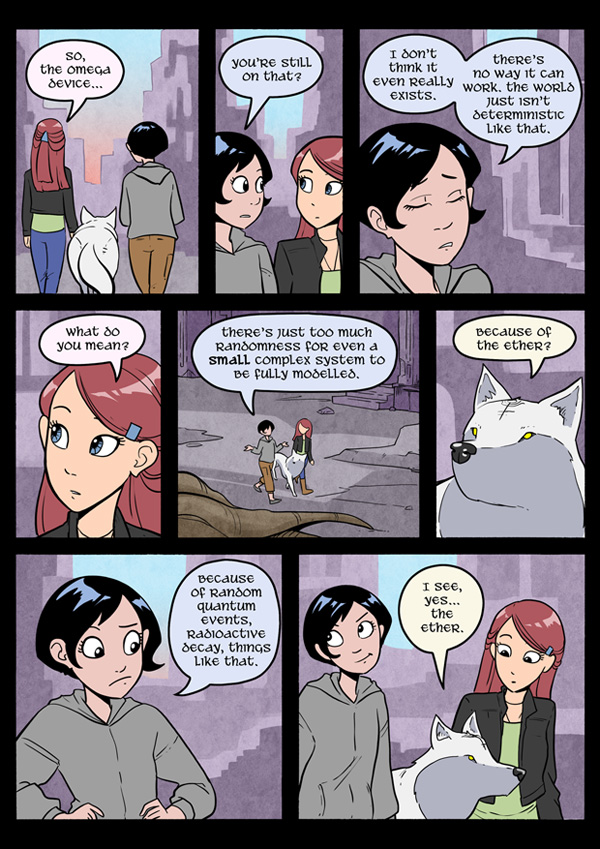@Frank Apisa,
Quote:Most scholars today are of the opinion that the Egyptians never held the ancient Hebrews as slaves. The story in Exodus is almost certainly bogus. There may have been some ancient Hebrews in Egypt, but it is more likely they were expelled...than that they had to "escape."
So you'd rather deny the Exodus than deal with the fact that this account didn't come from nowhere.
That's like saying black slavery never happened, then blaming the blacks for the Civil War. But whatever.
Even a fictional account tells what a people care enough about to write about.
But let's answer the question. There weren't Israelites. The Jewish identity makes distinctions there don't exist between themselves and Canaanites. The Jews have always been Canaanites, but when they returned to Israel, they made war with these "Canaanite" people (who were really their relatives).
https://www.ancient-origins.net/history-famous-people/moses-myth-fiction-or-history-002246
But yes, Canaanites did periodically head to Egypt during times of famine.
https://www.haaretz.com/israel-news/2021-03-25/ty-article/were-hebrews-ever-slaves-in-ancient-egypt-yes/0000017f-f6ea-d47e-a37f-fffeebef0000
Quote:There is no direct evidence that people worshipping Yahweh sojourned in ancient Egypt, let alone during the time the Exodus is believed to have happened. There is indirect evidence that at least some did. What's for sure is that thousands of years ago, Egypt was crawling with Semitic-speaking peoples.
What were actually Canaanites entered Egypt in droves. There was a Canaanite pharaoh called Yaqub (now it should have been Joseph, but this shows that around when Jacob's sons came in, Egypt was primarily rules by Canaanites; when you understand
historiography, this sort of error is not a big surprise).
The Egyptian records then mention the Hyksos, hostile outsiders from Lebanon or Syria. After a sort of upheaval, the line of kings wasn't the same any more, and the Egyptian royal families "didn't know Joseph." Josephus thinks the Hyksos themselves were Hebrew. I dunno.
Some theories are that this is a embellishment of a story about these people being expelled from Egypt remembering it as being enslaved then freed, and leaving. But the point is, it doesn't actually matter. When telling history for accuracy, actual events matter. But when telling history in the
context of a culture and their priorities, what actually matters is the stories they
choose to tell. This tells a great deal more than actual events.
But we continue reading. Were there actual Hebrew slaves in Egypt?
Well, the short answer of this article's title is "Were Hebrews Ever Slaves in Ancient Egypt? Yes" so I assume so. But let's find out what happened.
Quote:Egyptian scribes of Ahmose I and Thutmoses III wrote boastfully of campaigns in the Levant, resulting in captured prisoners being enslaved in Egypt. Various descriptions perfectly match scenes in the Passover Haggadah.
Quote:The setting described in Exodus could be Egypt's East Delta, where the Nile floods every year. The area has no source of stone, and mud-brick structures repeatedly "melted" back into the mud and silt. Even stone temples have hardly survived here. Physical evidence of slaves working there isn't likely to have survived. But a leather scroll dating to the time of Ramesses II (1303 BCE-1213 BCE) describes a close account of brick-making apparently by enslaved prisoners of the wars in Canaan and Syria, which sounds very much like the biblical account. The scroll describes 40 taskmasters, each with a daily target of 2,000 bricks
Quote:Other Egyptian papyruses (Anastasi III & IV) discuss using straws in mud bricks, as mentioned in Exodus 5:7: "You must not gather straw to give to the people to make bricks as formerly. Let themsleves go and gather straw for themselves".
Quote:The tomb of vizier Rekhmire, ca. 1450 BCE, famously shows foreign slaves “making bricks for the workshop-storeplace of the Temple of Amun at Karnak in Thebes” and for a building ramp. They are labeled "captures brought-off by His Majesty for work at the Temple of Amun". Semites and Nubians are shown fetching and mixing mud and water, striking out bricks from molds, leaving them to dry and measuring their amount, under the watchful eyes of Egyptian overseers, each with a rod.
Quote:Also, the biblical description of how Hebrew slaves suffered under the lash is borne out by the Egyptian papyrus Bologna 1094, telling how two workers fled their taskmaster “because he beat them”. So it seems the biblical descriptions of Egyptian slavery are accurate.
Quote:Conclusively, Semitic slaves there were. However, critics argue there's no archaeological evidence of a Semitic tribe worshiping Yahweh in Egypt.
(I suspect this came later as the Canaanites identified themselves as "Hebrew." By the way... the Mount Sinai is also called Mount Hebron. The Hebrews were the people from Mount Hebron)
Quote:The papyrus Anastasi VI from around 3200 years ago describes how the Egyptian authorities allowed a group of Semitic nomads from Edom who worshiped Yahweh to pass the border-fortress in the region of Tjeku (Wadi Tumilat) and proceed with their livestock to the lakes of Pithom.
Shortly afterwards, the Israelites enter world history with the Merenptah stele, which bears the first mention of an entity called Israel in Canaan. It is robustly dated at is 1210 BCE, i.e., as of writing, 3226 years ago.

Quote:These Yahweh worshippers were in ancient Egypt well after the Exodus is supposed to have happened. Members of the Yahweh cult may have existed there earlier, but there is no solid evidence for that. There are, however, indications.
According to the scribe Manetho, the founder of monotheism was Osarisph, who later adopted name Moses, and led his followers out of Egypt in Akhenaten's reign. Akhenaten was the heretic Pharaoh who abolished polytheism and replaced it with monotheism, worshiping only the sun disc, Aten.
Quote:The absence of evidence of a sojourn in the wilderness proves nothing. A Semitic group in flight wouldn't have left direct evidence: They would not have built cities, built monuments or done anything but leave footprints in the desert sand.
Yet more support for the Haggadah may lie in an interesting poem copied onto a papyrus dating to the 13th century BCE (although original is believed to be much older), called the "Admonitions of Impuwer or the Lord of All").
We have a link to this poem.
https://www.jstor.org/stable/3855739?seq=1#page_scan_tab_contents
Quote:It portrays a devastated Egypt haunted by plagues, droughts, violent uprisings – culminating in the escape of slaves with Egypt's wealth. In short, the Impuwer papyrus seems to be telling the story of Exodus from the Egyptian point of view, from a river of blood to the devastation of the livestock to darkness.
Also, the Egyptians were not above altering historical records when the truth proved to be embarrassing or went against their political interests. It was not the praxis of the pharaohs to advertise their failures on temple walls for all to see. When Thutmose III came to power, he tried to obliterate the memory of his predecessor, Hatshepsut. Her inscriptions were erased, her obelisks surrounded by a wall, and her monuments were forgotten. Her name does not appear in later annals.
Quote:
The Exodus could be a distant Semitic memory of the expulsion of Hyksos, or small-scale exoduses by different tribes and groups of Semitic origin during various periods. Or it could be a fable.
Psychologically, though, why would scribes invent a tale about such a humble and humiliating beginning such as slavery? Nobody but the Jews describe their community's beginning in such lowly terms. Most people prefer to connect their leaders to heroic deeds or even to claim a direct lineage to Gods.
The author's bottom line is that no people would willingly mention their people's origins as slaves. This sort of embarrassing story is the sort that people like to hide from their history.
But the "Hebrews" were probably "Canaanites."
So all those stories in the Bible about the Jews fighting the Canaanites? Yeah, they were fighting their own relatives over a stupid reason like "They have a different history than us, so they're not REAL Jews."
Quote:In both the Exodus and Jeremiah 34 stories, it's not that Yahweh hates slavery, it's that, in the first instance, he demands that the Israelites be emancipated by the Ramses, and in the second instance, he demands that the Jerusalemites free their Hebrew slaves in return for sparing Jerusalem from Nebuchadnezzar's invasion. No mention of slaves other than Israelites and Hebrew Jerusalemites is made in these stories. Yahweh is merely singling out these particular groups of slaves, his people.
Have you not noticed that some Jews have an extreme blind spot when it comes to their culture? Let's read the book of Jonah.
Quote:1 The word of the Lord came to Jonah son of Amittai: 2 “Go to the great city of Nineveh and preach against it, because its wickedness has come up before me.”
3 But Jonah ran away from the Lord and headed for Tarshish.
The ship starts having trouble, so they throw him overboard because he says he's causing it. He gets eaten by a fish, and spends three days in there. Jonah prays for forgiveness, and the fish vomits him onto dry land.
Quote:Then the word of the Lord came to Jonah a second time: 2 “Go to the great city of Nineveh and proclaim to it the message I give you.”
3 Jonah obeyed the word of the Lord and went to Nineveh. Now Nineveh was a very large city; it took three days to go through it. 4 Jonah began by going a day’s journey into the city, proclaiming, “Forty more days and Nineveh will be overthrown.” 5 The Ninevites believed God. A fast was proclaimed, and all of them, from the greatest to the least, put on sackcloth.
6 When Jonah’s warning reached the king of Nineveh, he rose from his throne, took off his royal robes, covered himself with sackcloth and sat down in the dust. 7 This is the proclamation he issued in Nineveh:
“By the decree of the king and his nobles:
Do not let people or animals, herds or flocks, taste anything; do not let them eat or drink. 8 But let people and animals be covered with sackcloth. Let everyone call urgently on God. Let them give up their evil ways and their violence. 9 Who knows? God may yet relent and with compassion turn from his fierce anger so that we will not perish.”
10 When God saw what they did and how they turned from their evil ways, he relented and did not bring on them the destruction he had threatened.
Animals in sackcloth. God spares everyone. Jonah's response?
Quote:But to Jonah this seemed very wrong, and he became angry. 2 He prayed to the Lord, “Isn’t this what I said, Lord, when I was still at home? That is what I tried to forestall by fleeing to Tarshish. I knew that you are a gracious and compassionate God, slow to anger and abounding in love, a God who relents from sending calamity. 3 Now, Lord, take away my life, for it is better for me to die than to live.”
4 But the Lord replied, “Is it right for you to be angry?”
5 Jonah had gone out and sat down at a place east of the city. There he made himself a shelter, sat in its shade and waited to see what would happen to the city. 6 Then the Lord God provided a leafy plant[a] and made it grow up over Jonah to give shade for his head to ease his discomfort, and Jonah was very happy about the plant. 7 But at dawn the next day God provided a worm, which chewed the plant so that it withered. 8 When the sun rose, God provided a scorching east wind, and the sun blazed on Jonah’s head so that he grew faint. He wanted to die, and said, “It would be better for me to die than to live.”
9 But God said to Jonah, “Is it right for you to be angry about the plant?”
“It is,” he said. “And I’m so angry I wish I were dead.”
10 But the Lord said, “You have been concerned about this plant, though you did not tend it or make it grow. It sprang up overnight and died overnight. 11 And should I not have concern for the great city of Nineveh, in which there are more than a hundred and twenty thousand people who cannot tell their right hand from their left—and also many animals?”
To sit and sulk like a little emo brat. Basically, the Jewish mindset as a chosen people has become a toxic thing, where they cannot tolerate the idea that maybe God also wants other people included. Nope, the Jewish laws are written with Jews in mind.






